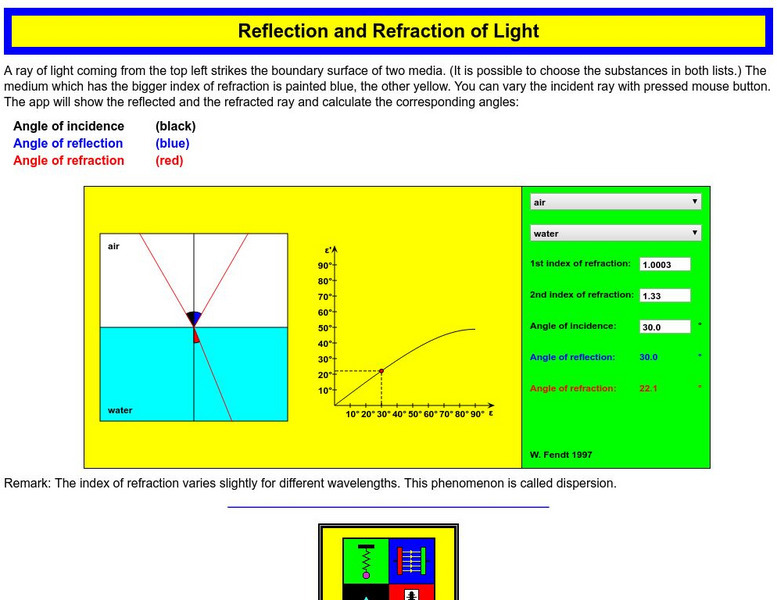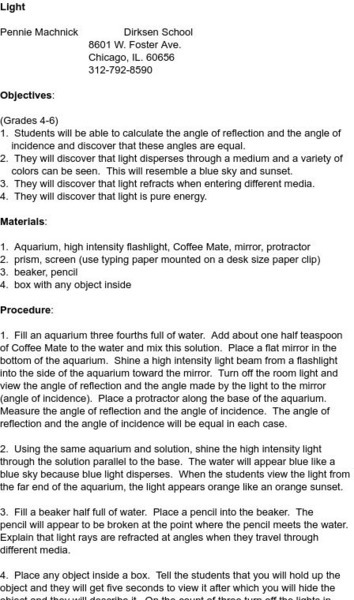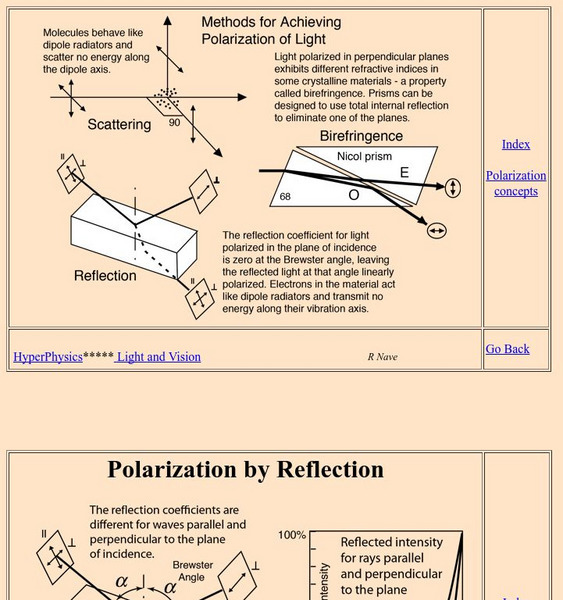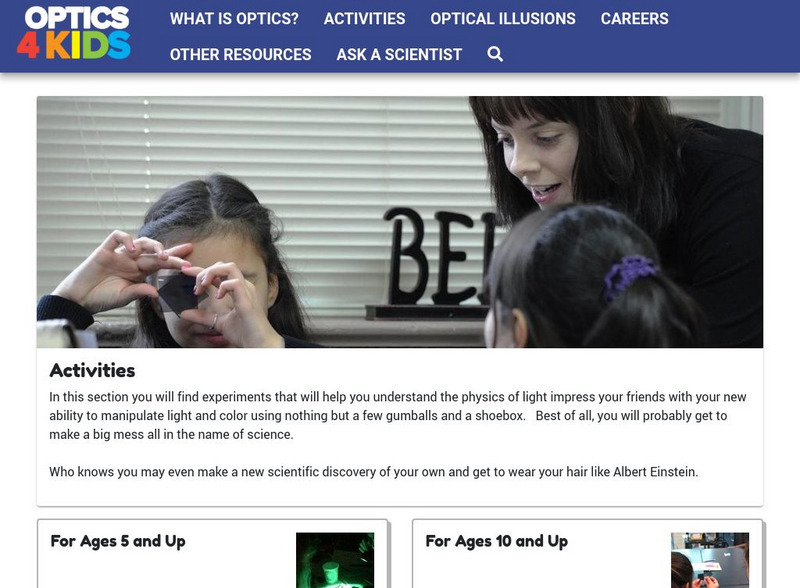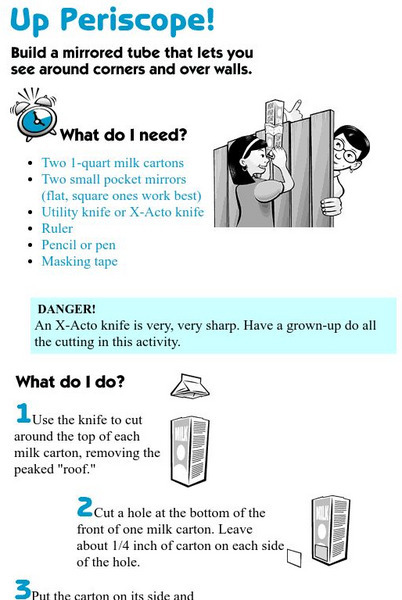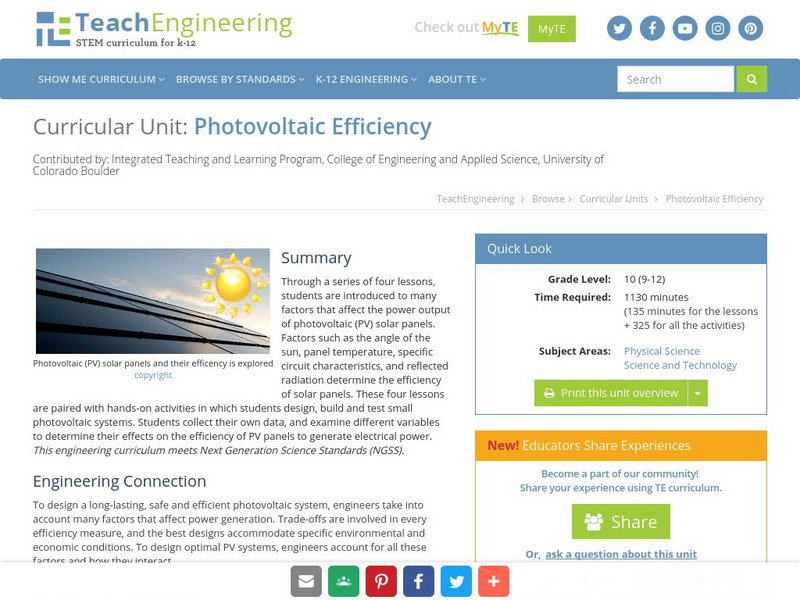CK-12 Foundation
Ck 12: Physical Science: Refraction
[Free Registration/Login may be required to access all resource tools.] Refraction of light in matter and how light changes its speed and angle of refraction according to the type of medium it is travelling through.
National Council of Teachers of Mathematics
Nctm: Slam Ball
[Free Registration/Login Required] Angles and symmetry are reviewed in this learning game. Students try to identify high-scoring paths by slamming the ball off the sides of the game board and send it on a path that collects the most tokens.
Physics Classroom
The Physics Classroom: Refraction and Ray Model of Light: Boundary Behavior
In this illustrated physics tutorial, students investigate the connection between light reflection and light refraction.
Walter Fendt
Walter Fendt: Reflection and Refraction of Light
Defines the refraction of light and provides an applet for investigating it.
Science and Mathematics Initiative for Learning Enhancement (SMILE)
Smile: Light
For this activity, students actually find the angles of reflection and incidence.
Georgia State University
Georgia State University: Hyper Physics: Methods of Polarization
At this college physics department site, the polarization of light is explained and illustrated as well as the primary methods of polarization (scattering, reflection, and refraction).
University of Colorado
University of Colorado: Ph Et Interactive Simulations: Bending Light
Manipulate variables and measure angles as light is refracted in this interactive simulation.
University of Colorado
University of Colorado: Ph Et Interactive Simulations: Bending Light
Explore bending of light between two media with different indices of refraction. See how changing from air to water to glass changes the bending angle. Play with prisms of different shapes and make rainbows.
TeachEngineering
Teach Engineering: When Silicon Talks
In this activity, students tackle this aspect of engineering as they solve problems for precise angles and speeds, and predict data output when samples are altered.
Optical Society
Optical Society of America: Optics for Kids: Mirrors and Images
An experiment to investigate how many images appear as the angle between two hinged mirrors is increased. Accompanied by an explanation of what is happening, questions for students to consider, and a link to an article about reflection.
Florida State University
Florida State University: Molecular Expressions Microscopy Primer: Light and Color Refraction of Light
Comprehensive and sophisticated overview of light refraction includes an historical overview of the subject and explanations of the mathematics that underpin refractive indexes, the relative index of refraction, Snell's law, and light...
Optical Society
Optical Society of America: Exploring the Science of Light: Easy Activities
A collection of simple experiments for exploring the basic properties of light and color.
National Council of Teachers of Mathematics
The Math Forum: Putt Putt Golf in the Math Classroom
Putt-Putt golf can be a great tool in helping students understand angles and their reflections. Here a teacher demonstrates the "Course," set up in his classroom to assist in explaining to students how to use geometry and angles in...
Teachers TryScience
Teachers Try Science: Where There's Light, There's Hot Food!!!
This unit helps young scholars learn to apply the concept of solar energy conservation. They are introduced to angles and their effect on the amount of light reflected, and they will also design, construct, manipulate, critique, evaluate...
Illustrative Mathematics
Illustrative Mathematics: G Co Origami Equilateral Triangle
The purpose of this task is to explore reflections in the context of paper folding. Each fold is associated with a line of reflection and understanding each step in the construction requires careful analysis of angles and of the...
University of Minnesota
University of Minnesota: Refraction of Light
This page is a continuation of a tutorial about light reflection and refraction. It contains a diagram and suggestions on how to derive Snell's Law, which governs the refraction of light in a medium. For background to this derivation,...
Exploratorium
Exploratorium: Bubbularium
What colors do you see in a bubble? Why do you see colors in a bubble? Use this site to find out the answer to these questions with this easy experiment.
Exploratorium
Exploratorium: Up Periscope!
Children can look around corners with this homemade periscope. Great instructions at this Exploratorium site on how to build a periscope.
OER Commons
Oer Commons: Review Quiz
Students reflect on their work and apply what they've learned about the characteristics of geometric figures. Includes a learning game to be played with a partner.
OER Commons
Oer Commons: Shape Characteristics
For this lesson, students discuss what they know about shapes and their characteristics through a paper-folding activity that results in a parallelogram. Included are examples, discussion questions, and a reflection activity....
Math Slice
Math Slice: Geometry Slice Special Test
A succinct test for assessing geometry concepts. Assessment is scored online giving immediate feedback. An excellent assessment tool.
Utah Education Network
Uen: Discovering Ourselves in Literature and Life
This lesson plan, provided by the International Society for Technology in Education (ISTE), encourages students to evaluate literature in a variety of multimedia formats and answer the question, "Who Am I?," Students are then asked to...
TeachEngineering
Teach Engineering: Photovoltaic Efficiency
Through a series of four lessons, students are introduced to many factors that affect the power output of photovoltaic (PV) solar panels. Factors such as the angle of the sun, temperature of the panels, specific circuit characteristics,...
Georgia State University
Georgia State University: Hyper Physics: Crossed Polarizers
At this univeristy physics department site, the polarization of light is explained and illustrated. Methods for analyzing light to determine the degree of polarization are stated and explained with equations.




